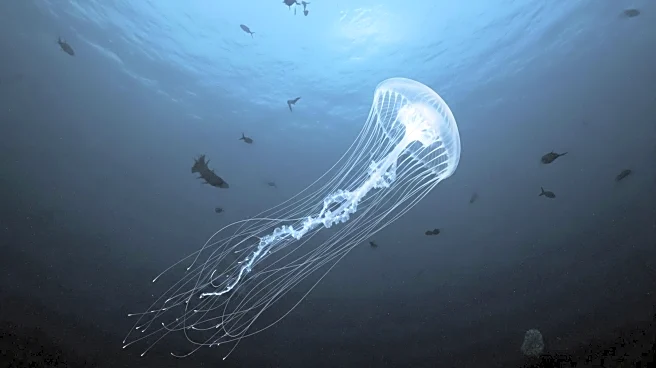What is the story about?
What's Happening?
Scientists have discovered a new species of mollusk, Bathylepeta wadatsumi, nearly 6 kilometers beneath the Pacific Ocean near Japan. This limpet species, identified through submersible technology, exhibits unique anatomical and genetic traits distinct from its shallow-water relatives. The discovery, published in Zoosystematics and Evolution, highlights the role of submersibles in deep-sea exploration, allowing researchers to observe and collect specimens in their natural habitats. This finding challenges previous assumptions about deep-sea ecosystems and suggests a greater diversity of life in these extreme environments than previously understood.
Why It's Important?
The discovery of Bathylepeta wadatsumi has significant implications for marine biology and our understanding of deep-sea ecosystems. It demonstrates the adaptability of life in extreme conditions and the potential for undiscovered species in the ocean's depths. This finding emphasizes the importance of advanced technology in exploring and understanding the deep sea, which remains one of the least explored areas on Earth. The research could lead to new insights into the evolutionary processes that allow species to thrive in harsh environments, contributing to broader ecological and evolutionary studies.
















